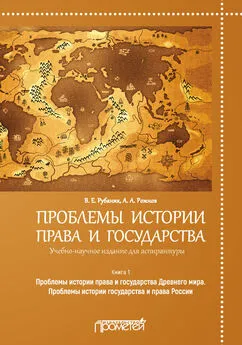Уильям Дэвис - Нервные государства
- Название:Нервные государства
- Автор:
- Жанр:
- Издательство:АСТ
- Год:2021
- Город:Москва
- ISBN:978-5-17-117413-2
- Рейтинг:
- Избранное:Добавить в избранное
-
Отзывы:
-
Ваша оценка:
Уильям Дэвис - Нервные государства краткое содержание
Таков был политический идеал, о котором философы мечтали с XVII века.
Все изменилось, и сегодня люди мало верят в опыт и нейтральность ученых.
Миром стали править эмоции. Теперь они указывают направления политики.
Как и почему это произошло?
Почему политика сделалась такой капризной и воинственной?
Что это нам сулит?
На эти и другие вопросы отвечает Уильям Дэвис – профессор политэкономии, социолог, преподающий в Голдсмитском колледже Лондонского университета.
Нервные государства - читать онлайн бесплатно ознакомительный отрывок
Интервал:
Закладка:
142
Weinberger (2017), p. 17.
143
D. Edgerton (2011), Britain’s War Machine: Weapons, Resources, and Experts in the Second World War, Oxford University Press.
144
Ibid, p. 100.
145
Darwin (1872), The Expression of the Emotions in Man and Animals, John Murray, p. 31. [Рус. изд.: Ч. Дарвин, «О выражении эмоций у человека и животных», СПб.: Питер, 2001.]
146
W. James (1884), “What is an Emotion?”, Mind, том 9, вып. 34, p. 190. [Рус. изд. в составе: Джемс В., «Психология. Часть II», СПб.: Изд-во К. Л. Риккера, 1911]
147
E. Hobsbawm (2010b), Age of Empire: 1875–1914, Hachette.
148
Clausewitz (2013), p. 341.
149
Цит. в Strachan (2008), pp. 25–26.
150
T. Hippler (2017), Governing from the Skies: A Global History of Aerial Bombing, Verso.
151
Clausewitz (2013), p. 146.
152
Clausewitz (2013), p. 295.
153
Clausewitz (2013), p. 337.
154
Clausewitz (2013), p. 341.
155
Clausewitz (2013), p. 325.
156
Hobsbawm (2010a), p. 75.
157
Clausewitz (2013), p. 150.
158
P. Thiel (2009), “The Education of a Libertarian”, Cato Unbound, 13 April 2009.
159
P. Thiel (2014), Zero to One: Notes on Startups or How to Build the Future, Virgin Books, p. 106.
160
P. Thiel (2014), Zero to One: Notes on Startups or How to Build the Future, Virgin Books, p. 5.
161
“Peter Thiel’s Apocalypse”, San Francisco Magazine, 29 September 2017.
162
P. McKenna (2006), The World’s Newest Profession: Management Consulting in the Twentieth Century, Cambridge University Press.
163
“This shadowy company is flying planes over US cities”, BuzzFeed, 4 August 2017.
164
O. Neurath (2005), Otto Neurath Economic Writings Selections 1904–1945, Springer.
165
L. Von Mises (1990), Economic Calculation in the Socialist Commonwealth, Ludwig Von Mises Institute.
166
J. Schumpeter (1934), The Theory of Economic Development: An Inquiry Into Profits, Capital, Credit, Interest, and the Business Cycle, Transaction Publisher, p. 85.
167
J. Schumpeter (1934), The Theory of Economic Development: An Inquiry Into Profits, Capital, Credit, Interest, and the Business Cycle, Transaction Publisher, p. 93.
168
L. Mises (1922), Socialism: An Economic and Sociological Analysis, Mises Institute, p. 42.
169
P. Mirowski (2002), Machine Dreams: How economics became a Cyborg Science, Cambridge University Press; P. Mirowski & E. Nik-Khah (2017), The Knowledge We Have Lost in Information: The History of Information in Modern Economics, Oxford University Press.
170
Цит. в A. Ebenstein (2014), Friedrich Hayek: A Biography, St Martin’s Press.
171
F. Hayek (1945), “The Use of Knowledge in Society”, American Economic Review, том 35, номер 4. [Рус. изд. в составе: Ф. Хайек, «Индивидуализм и экономический порядок», Челябинск: Социум, 2011]
172
Ibid, p. 522.
173
F. Hayek (1943), “The facts of the social sciences”, Ethics, том 54, номер 1.
174
F. Hayek (2002), “Competition as a Discovery Procedure”, Quarterly Journal of Austrian Economics, том 5, номер 3.
175
J. Meyer (2016), Dark Money, Doubleday, p. 9.
176
J. Meyer (2016), Dark Money, Doubleday, p. 71.
177
N. Oreskes & E. Conway (2011), Merchants of Doubt: How a Handful of Scientists Obscured the Truth on Issues from Tobacco Smoke to Global Warming, A&C Black.
178
“Exxon knew about climate change almost 40 years ago”, Scientific American, 26 October 2015.
179
F. Hayek (2012), Law Legislation & Liberty, Routledge, p. 179.
180
R. Henderson et al. (1998), “Universities As A Source Of Commercial Technology: A Detailed Analysis Of University Patenting, 1965–1988”, Review of Economics and Statistics, том 80, вып. 1.
181
F. Hayek (2006), The Constitution of Liberty, Routledge, p. 378. [Рус. изд.: Хайек Ф., Конституция свободы, Новое издательство, 2018]
182
“208,500 additional deaths could occur by 2026 under the Senate health plan”, Vox, 3 July 2017.
183
Подразумевается американский футбол.
184
“World’s witnessing a new gilded age as billionaires” wealth swells to $6tn”, Guardian, 26 October 2017.
185
Hayek (2006).
186
S. Solomon et al (2016).
187
“DARPA devotes $60 million for a Brain-Computer interface”, InfoScience Today, 14 February 2017; “Controlling VR with your mind”, MIT Technology Review, 22 March 2017.
188
“Facebook has 60 people working on how to read your mind”, Guardian, 19 April 2017.
189
M. Zuckerberg (2017), отрытое письмо доступно по ссылке https://www.facebook.com/notes/mark-zuckerberg/building-global-community/10154544292806634/ (проверено 01.11.2019).
190
Эта история приводится у S. Ostrander & L Shroder (1970), Psychic Discoveries Behind the Iron Curtain, Prentice-Hall.
191
“DIA worried Soviets might try to ‘intercept’ them”, Muckrock, 23 March 2017.
192
Facebook won’t say if they’ll use your brain activity for advertisements”, Intercept, 22 May 2017.
193
Цит. в T. Rid (2017), Rise of the Machines: The Lost History of Cybernetics, Scribe, p. 63.
194
“Putin says the nation that leads in AI ‘will be the ruler of the world’”, Verge, 4 September 2017.
195
“On Internet privacy, be very afraid”, Harvard Gazette, 24 August 2017.
196
P. O’Neill (2016), Weapons of Math Destruction: How Big Data Increases Inequality and Threatens Democracy, Penguin.
197
“Advances in AI are used to spot signs of sexuality”, Economist, 9 September 2017.
198
“Putting a finger on our phone obsession”, dscout, 16 June 2016.
199
“Tech is becoming emotionally intelligent and it’s big business”, SingularityHub, 2 November 2017.
200
“The Age of AI Surveillance is here”, Quartz, 27 August 2017.
201
F. Maschewski & A. Nosthoff (2017), “Order from Noise: On Cambridge Analytica, Cybernetic Governance and the Technopolitical Imaginary,” Public Seminar, 20 March 2017.
202
This essential problem, of how to cope with overabundant information, is explored by M. Andrejevic (2013), InfoGlut: How Too Much Information Is Changing the Way We Think and Know, Routledge.
203
O’Neill (2016).
204
“Facebook told advertisers it can identify teens feeling “insecure” and ‘worthless’”, Guardian, 1 May 2017.
205
Google Transparency Project (2017), “Google Academics Inc”.
206
Pew (2017), “Globally, broad support for representative and direct democracy”; 2018 Edelman Trust Barometer.
207
Pew (2017).
208
Y. Algan et al. (2017).
209
Edwards (2010).
210
B. Weisberg (1970), Ecocide in Indochina: The Ecology of War, Canfield Press.
211
N. Watts et al. (2017), “The Lancet countdown on health and climate change: from 25 years of inaction to a global transformation for public health”, Lancet, том 391, номер 10120.
212
P. Hallmann et al. (2017), “More than 75 percent decline over 27 years in total flying insect biomass in protected areas”, PLoS ONE, 12(10).
213
R. Nixon (2011), Slow Violence, Harvard University Press.
214
S. Funtowicz & J. Ravetz (1995), “Science for the Post-Normal Age”, Futures, том 25, вып. 7.
215
Практика, в рамках которой распространение вредоносных идей пресекается путем недопущения их носителей к площадкам, где те могут их высказать; часто сравнивается критиками с обыкновенной цензурой.
216
«Безопасными пространствами» в образовательных учреждениях называют зоны, где не допускается преследование и насилие в отношении представителей ЛГБТ; часто сравнивается критиками с сегрегацией.
217
B. McKibben (2016), “We need to literally declare war on climate change”, New Republic, 15 August 2016.
218
G. Mann & J. Wainright (2018), Climate Leviathan: A Political Theory of our Planetary Future, Verso.
219
J. Gabrys (2017), “Citizen sensing, air pollution and fracking: From “caring about your air” to speculative practices of evidencing harm”, Sociological Review, том 65, вып. 2.
220
Edwards (2010).
221
R. Brooke (2016), How Everything Became War and the Military Became Everything: Tales from the Pentagon, Simon & Schuster, p. 20.
222
F. Nietzsche (2013 [1889]), Genealogy of Morals, Penguin. [Рус. изд. в составе: Фридрих Ницше, Сочинения в 2-х томах, том 2, М.: Мысль, 1990].
223
M. Stoller (2016), “How Democrats killed their populist soul”, Atlantic, 24 October 2016.
224
J. Balkin (2016), “Information Fiduciaries and the First Amendment”, UC Davis Law Review, том 49, номер 4.
Читать дальшеИнтервал:
Закладка:
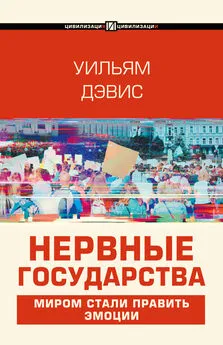



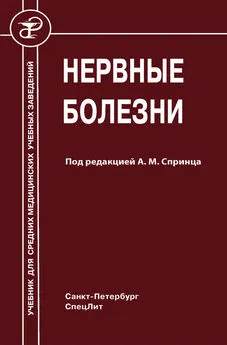
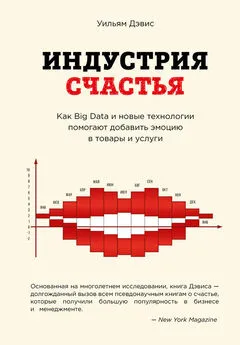
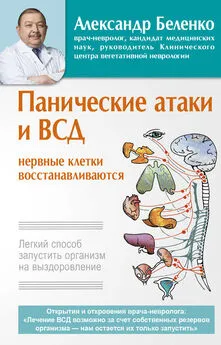
![Наталья Комоза - Нервные в клетке [Нейропроводник в успешную жизнь]](/books/1061163/natalya-komoza-nervnye-v-kletke-nejroprovodnik-v.webp)

